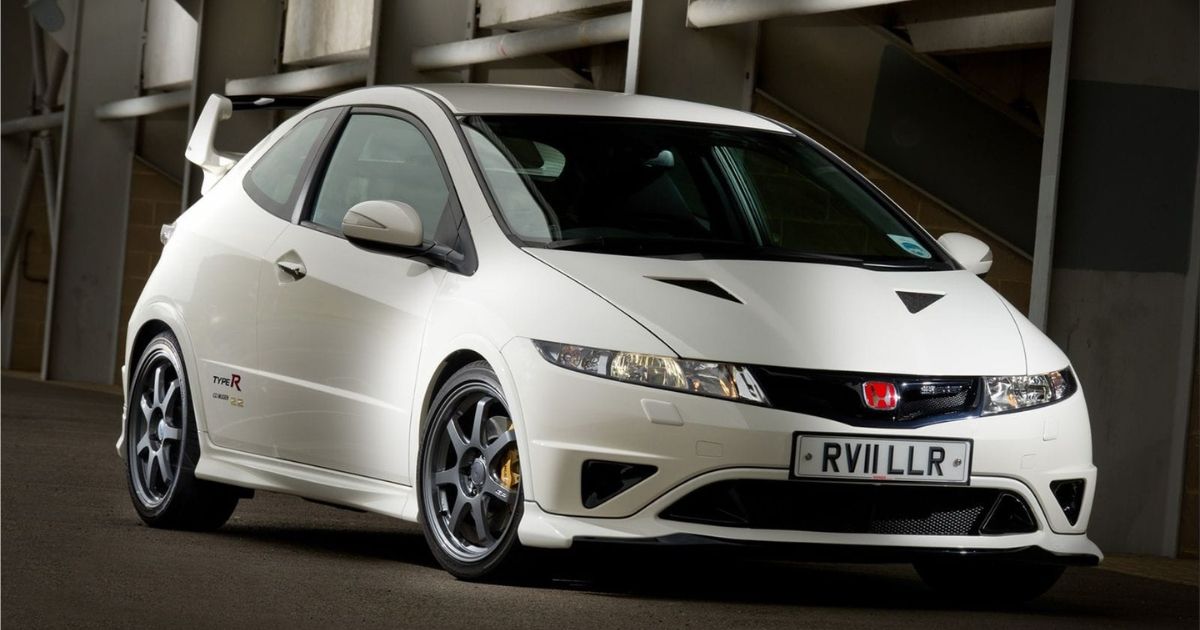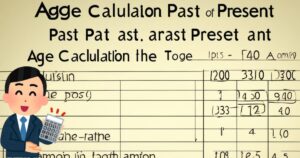The Honda Civic has been a beloved compact car for decades, renowned for its reliability, fuel efficiency, and affordability. However, like any vehicle, some model years have stood out as exceptional, while others have faced their fair share of challenges.
In this comprehensive guide, we’ll delve into the best and worst Honda Civic years, spanning multiple generations, to help you make an informed decision when purchasing a used or new Civic.
Honda Civic Generations
Before we dive into the nitty-gritty details, let’s take a moment to understand the different Honda Civic generations. The Civic has undergone numerous redesigns and updates since its inception in 1972, with each generation introducing new features, styling, and technological advancements.
| Generation | Years |
| 7th generation (ES/EN) | 2001-2005 |
| 8th generation (FA1) | 2006-2011 |
| 9th generation (FB) | 2012-2015 |
| 10th generation (FC1/FC2/FC5) | 2016-2021 |
| 11th generation (FE) | 2022-Present |
Recognizing these generational shifts is crucial when comparing different model years, as specific upgrades or changes might be the deciding factor for many prospective Civic owners.
Honda Civic Best, Neutral, and Worst Years
In evaluating the best, neutral, and worst years of the Honda Civic, our rankings are meticulously based on a spectrum of factors, including:
- Owner-reported reliability (surveys)
- Annual maintenance costs
- Safety ratings
- Consumer Reports reliability scores
- Consumer Reports owner satisfaction scores
- NHTSA recalls, investigations, and complaints
- Edmunds owner ratings
- JD Power owner ratings
- Kelley Blue Book (KBB) owner ratings
- VehicleHistory owner ratings
- Cars.com owner ratings
By consolidating data from these authoritative sources, we’ve categorized each Honda Civic model year as the best, neutral, or worst, providing you with a comprehensive overview.
| Generation | Best Years | Neutral Years | Worst Years |
| 7th generation | 2004, 2005 | 2001, 2002, 2003 | N/A |
| 8th generation | 2009, 2010, 2011 | N/A | 2006, 2007, 2008 |
| 9th generation | 2013, 2014, 2015 | N/A | 2012 |
| 10th generation | 2019, 2020, 2021 | 2017, 2018 | 2016 |
| 11th generation | 2023 | N/A | 2022 |
“Neutral Years” denote model years that didn’t particularly stand out in either direction — they weren’t acclaimed as the best but didn’t garner significant negative feedback or issues.
Now, let’s dive into the specifics of each generation and explore the best, neutral, and worst Honda Civic years in detail.
Best & Worst Years for Honda Civic 7th Generation (2001-2005)
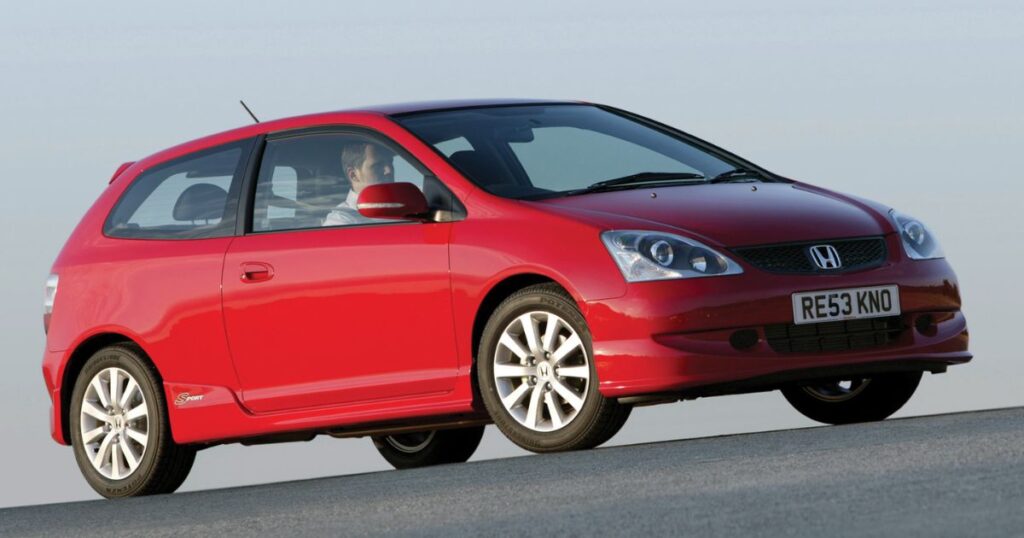
The 7th generation of the Honda Civic, which debuted in 2000, heralded a significant evolution for the model, showcasing a discernible departure in both design and engineering.
During the latter years of this generation, specifically 2004 and 2005, the Honda Civic reached its zenith, representing the epitome of its performance and innovation. Conversely, caution is advised for the years 2001, 2002, and 2003, as they are deemed the Honda Civic’s less favorable years, warranting a closer inspection before purchase.
The Best Years: 2004, 2005
With reasonably good fuel economy figures at 21 mpg for the city and 40 mpg for highway driving and outstanding Edmunds ratings, 2004 and 2005 are undeniably the best Honda Civic years of this generation.
At the heart of these vehicles was a range of engine options, the most popular being the 1.7L SOHC VTEC engine. These cars offered a balanced performance, paired with a 4-speed automatic or 5-speed manual transmission.
Also read this Post: Reliable is a Hyundai
Consumers could find a trim matching their budget and desires, from the base-level DX to the sporty Si model. On the technology front, these years saw the introduction of improved audio systems, power lock doors, and refined air conditioning units.
For safety, anti-lock brakes and dual front airbags were standard, and the EX trim even offered side airbags.
Despite their successes, it’s worth noting that these years were not without minor issues. Some owners reported occasional electronic glitches, especially concerning the radio and power windows.
The Worst Years: 2001, 2002, 2003
2001, 2002, and 2003 are the Honda Civic years you should avoid due to common transmission problems and costly repairs.
Owners recounted experiences of slipping transmissions, delays when changing gears, and, in severe cases, total transmission failure.
Recalls were another area of concern for these early years. The 2001 model, for instance, faced recalls surrounding exterior lighting and fuel pumps issues that could lead to sudden engine stalls.
In the 2002 and 2003 Civic models, while Honda had tried to rectify these problems, concerns with CVT transmissions and sporadic electrical issues persisted.
On the other hand, they had their merits, such as good fuel efficiency and a compact, agile design.
Best & Worst Years for Honda Civic 8th Generation (2006-2011)
The 8th generation of the Honda Civic, unveiled in 2006, marked a revolutionary leap forward with its sleek redesign, featuring a distinctive two-tier dashboard and bold, aggressive body contours.
During the initial phase of this generation, spanning from 2006 to 2008, the Honda Civic faced its toughest challenges, earning the reputation as the least favorable years within the 8th generation. However, the period from 2009 to 2011 emerged as the pinnacle of this generation, characterized by exceptional performance and innovation, making these years the prime highlights of the 8th-generation Honda Civic’s legacy.
The Best Years: 2009, 2010, 2011
With improved fuel economy, 2011 is primarily this generation’s best Honda Civic year. 2009 and 2010 are the other most reliable options for the 8th-generation Honda Civic.
These models featured the 1.8L SOHC i-VTEC engine paired with a 5-speed automatic or manual transmission, offering optimal fuel efficiency and commendable horsepower.
Trim levels were diverse, including the base DX, LX, the well-equipped EX, and the sporty Si variant. These years also marked the arrival of the Civic Hybrid, sporting an Integrated Motor Assist system, and the natural-gas-powered GX variant, hailed as one of the cleanest internal combustion vehicles.
The average fuel efficiency was further increased to 19 mpg for the city and 45 mpg for highway driving.
Advanced navigation systems, USB audio interfaces, and stability control became more widely available on the technology front, even on mid-tier trims.
The Worst Years: 2006, 2007, 2008
Shortly, 2006, 2007, and 2008 are the Honda Civic years you should “avoid like the plague” due to infamous engine cracks leading to coolant leakage and more severe problems.
While Honda didn’t officially issue a recall for this, they acknowledged it by settling a class-action lawsuit, which resulted in engine replacements for many affected owners.
Suspension problems also plagued these years, with owners often reporting excessive rear tire wear due to an adverse rear camber caused by problematic rear control arms.
Recalls were also a pain point. Issues ranged from critical components like the engine and suspension to exterior lighting problems.
Best & Worst Years for Honda Civic 9th Generation (2012-2015)
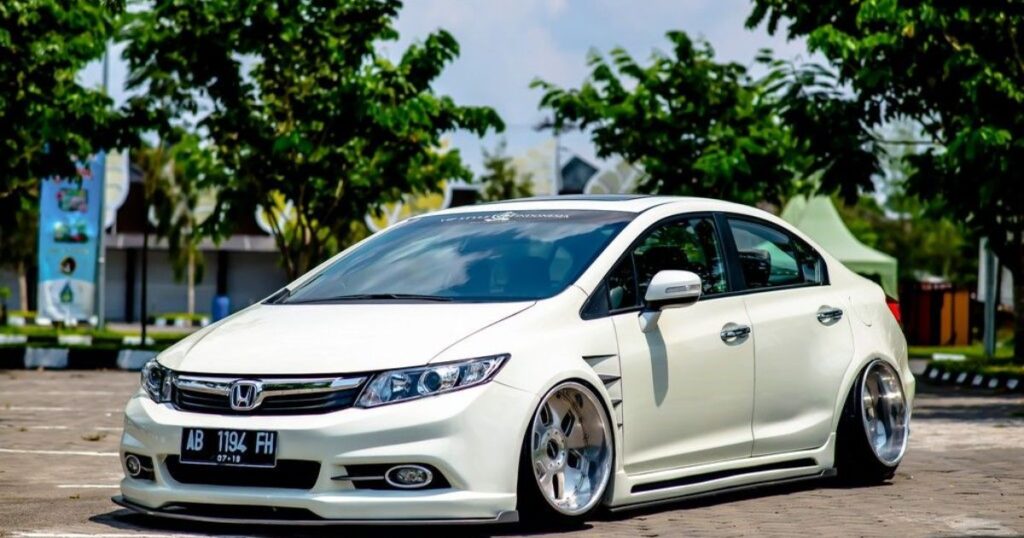
Introduced in 2012, the 9th generation Honda Civic experienced a remarkable transformation, enhancing its visual appeal and enhancing its technological capabilities. The 9th generation stands out as one of the most noteworthy periods for the Honda Civic, showcasing a harmonious blend of reliability and affordability.
Among these years, 2012 emerges as the only year to approach with caution in this generation. Conversely, 2013, 2014, and 2015 shine as the epitome of reliability within the Civic lineup.
The Best Years: 2013, 2014, 2015
With significantly good ratings from platforms like Consumer Reports, VehicleHistory, and Cars.com, 2013, 2014, and 2015 are undeniably the best Honda Civic years of the generation.
Under the hood, these years predominantly featured a 1.8L four-cylinder engine paired with a 5-speed manual or CVT that balanced performance and fuel efficiency.
Trim diversification continued with base LX, more feature-packed EX, sporty Si, fuel-sipping HF, and the top-tier EX-L.
Notably, the 2013 Civic received a more sophisticated exterior facelift, addressing the bland aesthetics critiques of the 2012 model. The interiors also got a notable upgrade with superior materials, improved ergonomics, and an advanced infotainment system.
This infotainment system, dubbed “HondaLink,” introduced in 2014, provided smartphone integration, enabling features like navigation, streaming audio, and voice-controlled search functionalities.
Safety was emphasized by introducing the “Honda LaneWatch” blind-spot display in 2014.
Despite the accolades, there were a few minor complaints, especially with the CVT transmission’s responsiveness, which some users found to be slightly sluggish.
The Worst Years: 2012
Why avoid the 2012 Honda Civic? 2012, as in many introductory years, saw some teething problems addressed in the later models. Here are some of the 2012 Honda Civic’s problems:
Aesthetically, critics often deemed the 2012 model’s design as uninspired. Performance-wise, while the 1.8L engine was reliable, the overall ride quality and cabin noise isolation left much to be desired.
Owners raised concerns over power steering loss, sporadic transmission glitches, and unexpected electrical snags.
One notable recall pertained to a problematic left driveshaft, which, in rare instances, could separate and cause a loss of motive power.
While the 2012 Honda Civic did fare decently in some ratings, such as J.D. Power, significant room for improvement was evident.
Best, Neutral & Worst Years for Honda Civic 10th Generation (2016-2021)
In 2016, Honda unveiled its 10th generation Civic, introducing a bold, innovative, and futuristic redesign that captivated automotive enthusiasts worldwide.
The standout years for the Honda Civic within this generation are undoubtedly 2019, 2020, and 2021, where Honda continued to push boundaries and deliver exceptional performance and style. However, amidst these triumphs, 2016 stands out as the least favored Civic model year of the generation, facing criticisms and challenges that didn’t quite meet the high standards set by its successors.
The Best Years: 2019, 2020, 2021
2019, 2020, and 2021 – best years for the 10th generation Honda Civic, were the top rankers in platforms like Consumer Reports, VehicleHistory, Cars.com, and Kelley Blue Book.
These models were powered mainly by two engine options: the 2.0L four-cylinder, which balanced performance and fuel economy, and the turbocharged 1.5L four-cylinder, which delivered a spirited drive with commendable fuel efficiency.
These engines could be paired with a 6-speed manual transmission or a CVT, depending on the trim and preference.
Honda offered an expansive range of trims from the base LX, sporty Sport, feature-rich EX, and fuel-optimized EX-L to the top-of-the-line Touring.
These years introduced the Honda Sensing Suite, which included features like collision mitigation braking, lane-keeping assist, and adaptive cruise control.
The infotainment system witnessed a significant upgrade, offering a larger touchscreen with intuitive controls, Apple CarPlay, Android Auto, and improved voice recognition.
The Neutral Years: 2017, 2018
The 2017 and 2018 Civics served as transition years, working out the kinks from the 2016 models and laying the groundwork for the excellence of the subsequent years.
Engine options remained broadly consistent, with a slight emphasis on refining the CVT’s responsiveness based on user feedback.
Honda continued to invest in safety, slowly integrating the Honda Sensing suite across different trims.
These years also saw the introduction of the Hatchback variant after a decade-long hiatus, offering versatility and a European flair to the Civic lineup.
The Worst Years: 2016
The 2016 Honda Civic is the most problematic member of this generation. Here are the exact reasons why you should avoid the 2016 Honda Civic.
Owners frequently reported issues like sticky and jerky steering wheels, making for an uncomfortable drive.
The AC system became a point of contention, with many users noting malfunctions and Freon leaks, consistent across all tenth-generation Civic models.
However, Honda did take proactive measures, addressing it with the Civic condenser warranty extension.
Another drawback was the infotainment system, which, while advanced, often lagged or suffered from unexpected glitches.
Best & Worst Years for Honda Civic 11th Generation (2022-2023)
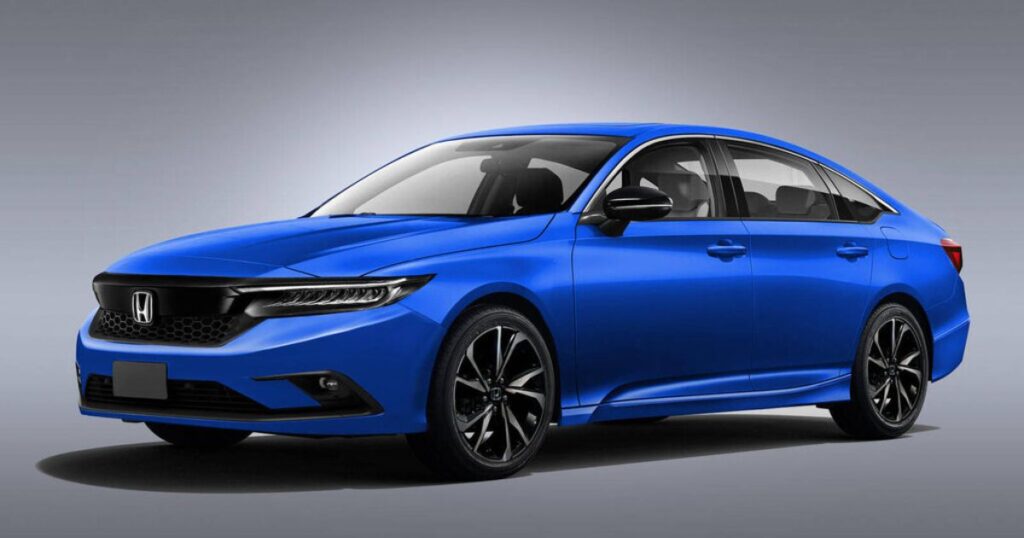
As the automotive landscape transitioned into a fresh era, the 11th iteration of the Honda Civic made its debut, exuding a distinct air of sophistication and polish, diverging from the daring and assertive styling cues of its predecessor, the 10th generation.
In the current context, the zenith of the 11th-generation Honda Civic’s performance and allure is encapsulated in the year 2023, showcasing its evolutionary strides and commendable advancements.
However, amidst its journey, 2022 serves as a cautionary tale, shadowed by a notable surge in owner grievances, cementing its reputation as a year to exercise prudence when considering a Honda Civic purchase.
The Best Years: 2023
In 2023, the Honda Civic solidified its position as a class leader. The model featured a redefined exterior with cleaner lines, presenting a more elegant and mature stance.
Interiors, too, saw a makeover with minimalist design cues, improved ergonomics, and an emphasis on tactile feedback.
The Civic has four trim levels: LX, Sport, EX, and Touring. Trim levels are mostly the same for the Civic Hatchback, although they are called LX, Sport, EX-L, and Sport Touring.
The LX and Sport models have a 2.0-liter four-cylinder motor, while the EX and Touring models have a 1.5-liter, turbocharged four-cylinder.
All sedan and liftback models come standard with a CVT. However, the liftback can be equipped with a 6-speed manual transmission on Sport and Sport Touring models.
The model boasted fuel efficiency figures reaching 23 mpg for city driving and a remarkable 44 mpg for highway commutes.
The Worst Years: 2022
The 2022 Honda Civic, being the introduction year for the 11th generation, faced specific teething issues.
The most prominent among these was the continuation of the sticky steering wheel problem seen in the previous generation, which raised concerns regarding drivability and overall experience.
Additionally, some users reported sporadic system glitches, primarily related to the Collision Mitigation System and the Adaptive Cruise Control, leading to intermittent activations when not required.
Honda Civic Average Resale Values
The Honda Civic has consistently maintained strong resale values, thanks to its reliability, popularity, and widespread demand. However, as with any vehicle, the resale value can vary based on factors such as the model year, mileage, condition, and overall market demand.
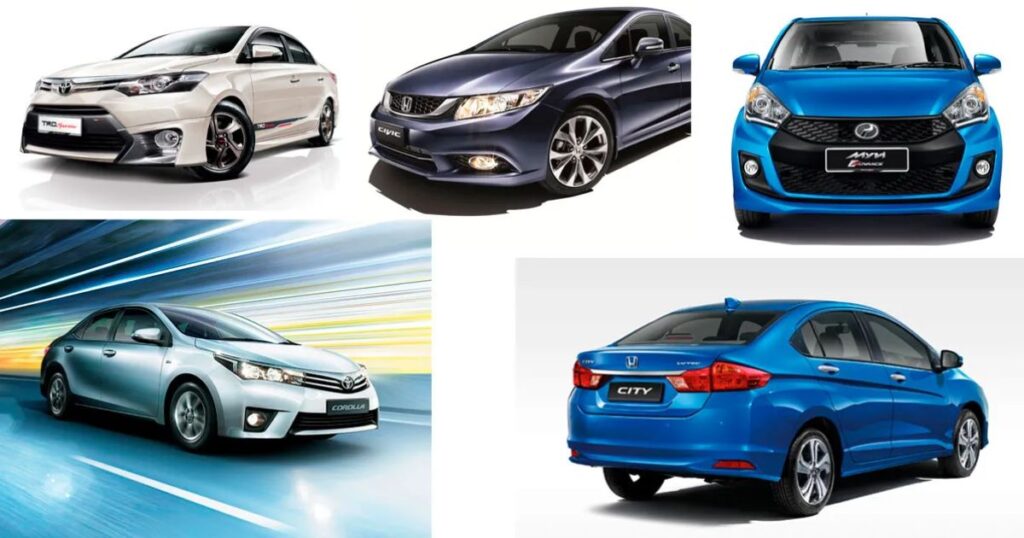
The graph above showcases the Honda Civic’s resale values over the years, demonstrating its impressive ability to retain value even after several years of ownership. This is a testament to the Civic’s reputation for reliability and longevity, as well as its widespread appeal among buyers in the used car market.
It’s worth noting that the resale value can also be influenced by factors specific to each model year, such as any major issues or recalls that may have impacted that particular year’s Civic. As such, it’s always advisable to research the specific model year you’re interested in and consult reliable sources like Kelley Blue Book or Edmunds for up-to-date resale value estimates.
Conclusion
In our Honda Civic exploration, standout choices include the 2011, 2013-2015, and 2017-2023 models, lauded for reliability, performance, and value. Yet, individual preferences vary; some prioritize fuel efficiency.
Thorough research, maintenance history, and mileage consideration are vital. The Civic’s enduring allure lies in blending practicality and driving pleasure. Take your time in decision-making, seek guidance, and share experiences to enrich collective understanding. Which Civic generation resonates with you? Share insights to aid fellow enthusiasts.

Hey there! I have 5 years of experienced repairing all makes and models. Specializes in engine diagnostics, brake repair, electrical systems, and teaching DIY maintenance tips. Passionate about keeping cars running safely.
